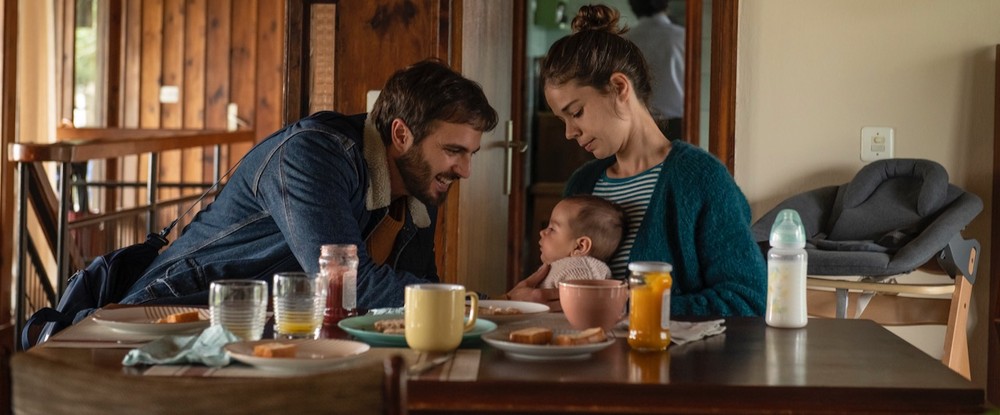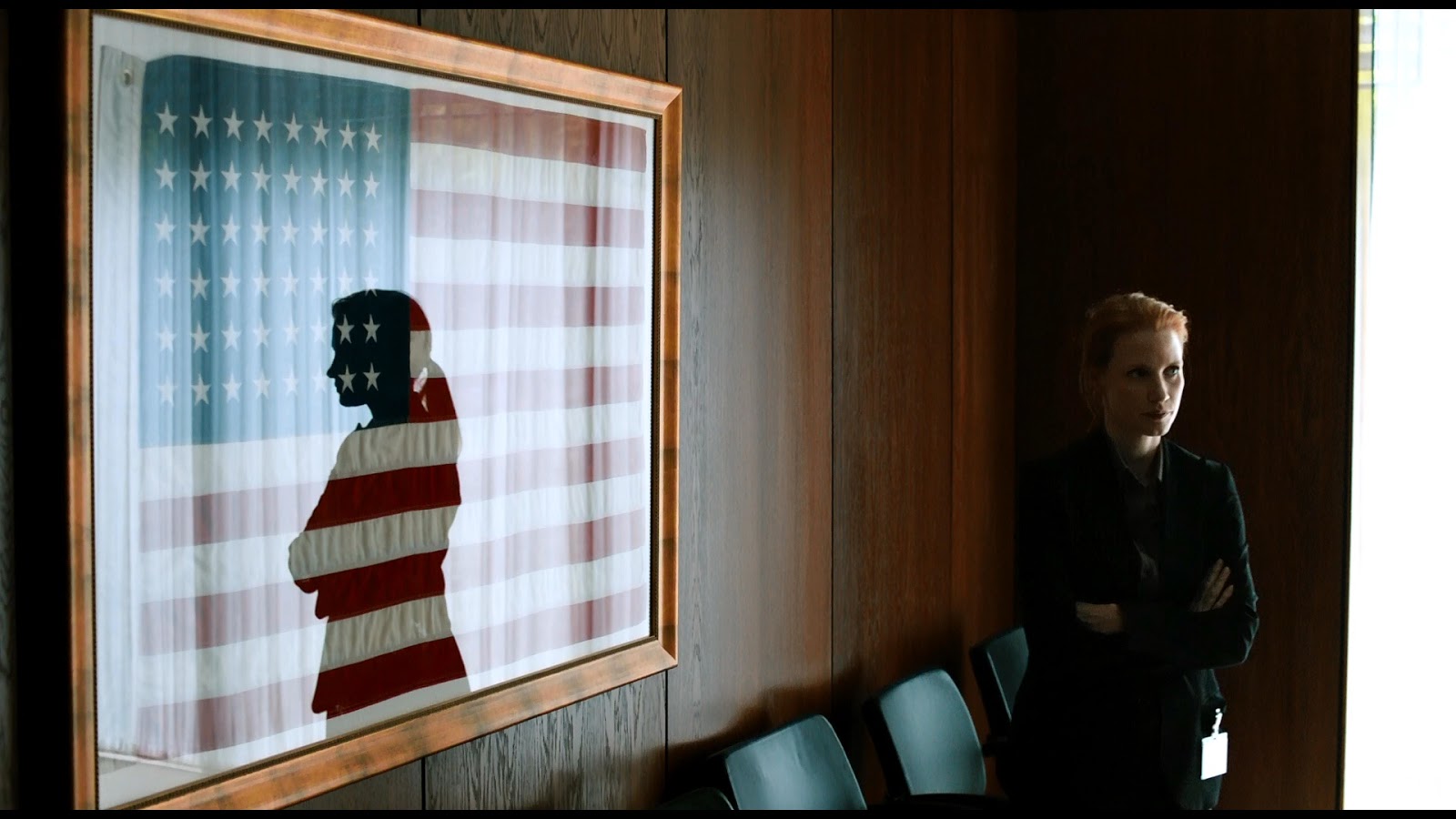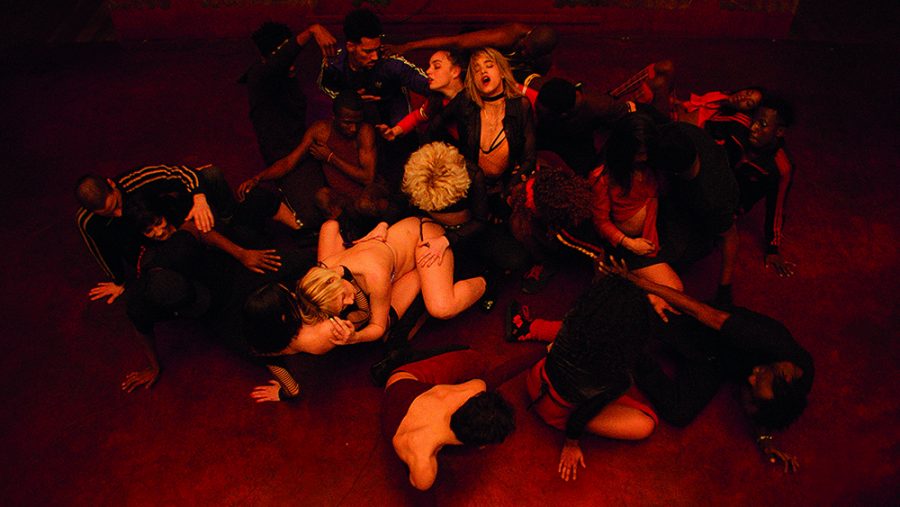 Portrayals of motherhood tend to fall into two camps, cinematically speaking. There’s the frazzled mum with sick down her shirt and a messy bun. Or there’s the superwoman, for whom having a child has done nothing to alter her sense of achievement and personal excellence. (Occasionally, your newborn turns out to be a literal demon, but that’s only in a certain kind of film.) Very little is said about those who are struggling to take a shower in peace or feel like they’re doing it all by themselves. Less still is said about generational trauma.
Portrayals of motherhood tend to fall into two camps, cinematically speaking. There’s the frazzled mum with sick down her shirt and a messy bun. Or there’s the superwoman, for whom having a child has done nothing to alter her sense of achievement and personal excellence. (Occasionally, your newborn turns out to be a literal demon, but that’s only in a certain kind of film.) Very little is said about those who are struggling to take a shower in peace or feel like they’re doing it all by themselves. Less still is said about generational trauma.
That’s where writer-director Alauda Ruiz de Azúa’s feature-length debut positions itself. We watch as Amaia (Laia Costa) struggles to adjust to life with a newborn (not least because her partner decides to go back to work as soon as their daughter is barely out of the womb). And we see her seek solace in her mother, the efficient, no-nonsense Begoña (Susi Sánchez) who, in turn, reveals her own unhappiness.
Ruiz de Azúa plunges into the hustle and noise of bringing a baby home. There is noise and nappies everywhere. Clothes pile up endlessly and everyone has an opinion to give. The newborn, Jone, screams as if her lungs were fit to burst. Amaia limps back into her apartment, wincing that her stitches are painful. “We all got stitches,” her mother dismisses, whilst she fusses over meal preparation. As she attempts to feed Jone, Amaia bites her lip to hold back pain; every movement is fraught with agony. It’s quite a raw portrayal of bringing a child home. It all feels very realistic.
Amaia is a freelance writer and her partner Javi (Mikel Bustamente) is a lighting designer for travelling theatre productions. Neither of them has paid leave and so Amaia is left, quite literally, holding the baby whilst Javi works all over Spain for weeks on end. Laia Costa gives a thoroughly brilliant rendering of the perils and pitfalls of first-time parenting. She questions her every move; she cries when her daughter won’t settle; she feels guilty about longing to get back to work. Her hopelessness and uncertainty are palpable.
But her decision to move in with her parents in their quaint Basque seaside home doesn’t quite turn out to be the helping hand she hoped for. Their relationship is visibly falling apart. It’s hard to tell if it’s a slow decline or a sudden, very perceptible hatred. Plates are smashed, voices are raised and accusations are thrown. Begoña reveals to her daughter that she had an affair several decades ago. “Yes, when I was married,” she states, bluntly.
 And so the line is drawn between both women. Begoña clearly felt trapped in her marriage but, perhaps owing to the time, felt she could not leave it (and her young daughter) behind. Amaia is furious that Javi gets to return to work whilst she struggles to freelance from home. “You said life doesn’t change when you have a baby,” she levels at him, whilst they whisper-fight over their sleeping daughter, “You lied!” It’s this feeling of being trapped, or at the very least having your choices suddenly very limited, that bonds Amaia to her mother in a way neither of them expects.
And so the line is drawn between both women. Begoña clearly felt trapped in her marriage but, perhaps owing to the time, felt she could not leave it (and her young daughter) behind. Amaia is furious that Javi gets to return to work whilst she struggles to freelance from home. “You said life doesn’t change when you have a baby,” she levels at him, whilst they whisper-fight over their sleeping daughter, “You lied!” It’s this feeling of being trapped, or at the very least having your choices suddenly very limited, that bonds Amaia to her mother in a way neither of them expects.
The film perhaps asks its audience if caring and nurturing are all-consuming. What price love, it might even tempt us to think. Particularly as Amaia soon finds herself caring for both her daughter and her mother. When we give of ourselves to love and look after another person, what remains of us when that person no longer needs our constant care? Do we still have options?
This might feel like slow-burn festival fodder where nothing really happens. But what Alauda Ruiz de Azúa does is lay the act of nurture bare. Through Laia Costa and Susi Sánchez’s absorbing central performances, we get to understand what it takes to give of yourself; what it takes to be a woman. Because, even though Amaia thinks of herself as a modern, work-from-home parent, she still takes on the role that is expected of new mothers all over the world – that of the all-giving.
Lullaby (also known as Cinco Lobitos, after the nursery rhyme both Amaia and Begoña sing to Jone) is a strong debut from Alauda Ruiz de Azúa. It offers up interesting perceptions of motherhood and womanhood in general. With strong performances at its core, it is well worth a watch. It may just change your mind about a few things.
Lullaby (Cinco Lobitos) is showing as part of the Country Focus: Vive el Cine Espanol at the Glasgow Film Festival 2023, where it is also up for the Audience Award. Get your tickets here.
- Glasgow Film Festival 2025 Announces Country Focus, Special Events and UK Wide Screenings - December 11, 2024
- Armand – Review - November 4, 2024
- Eephus – Review - November 3, 2024




